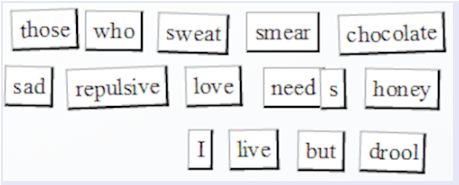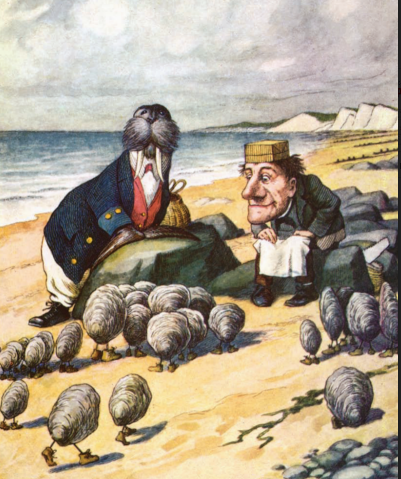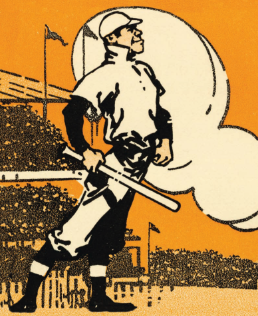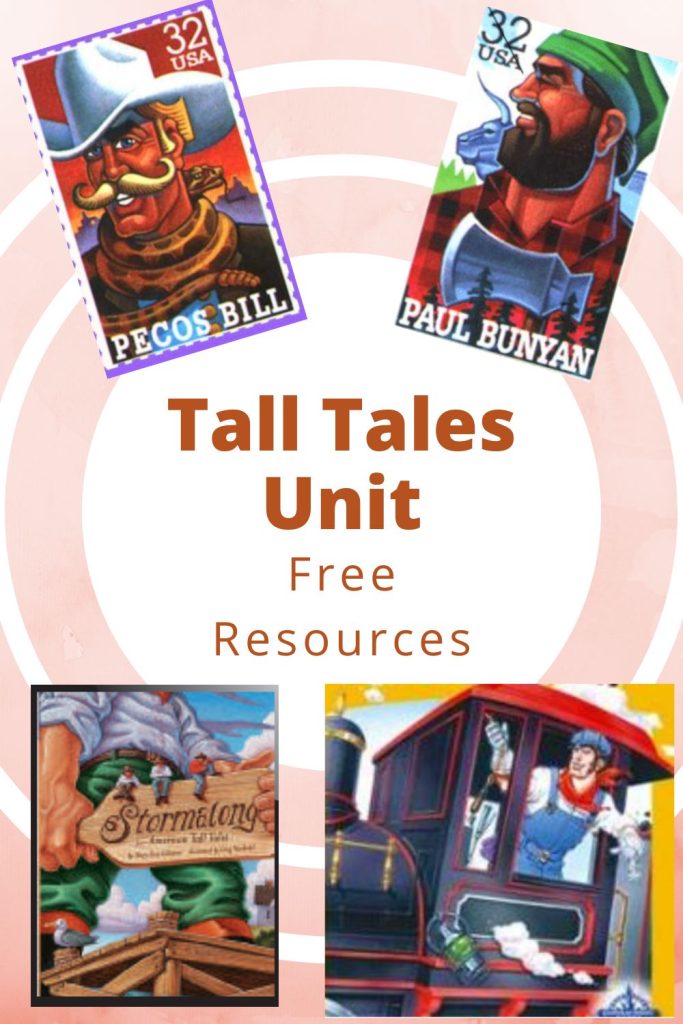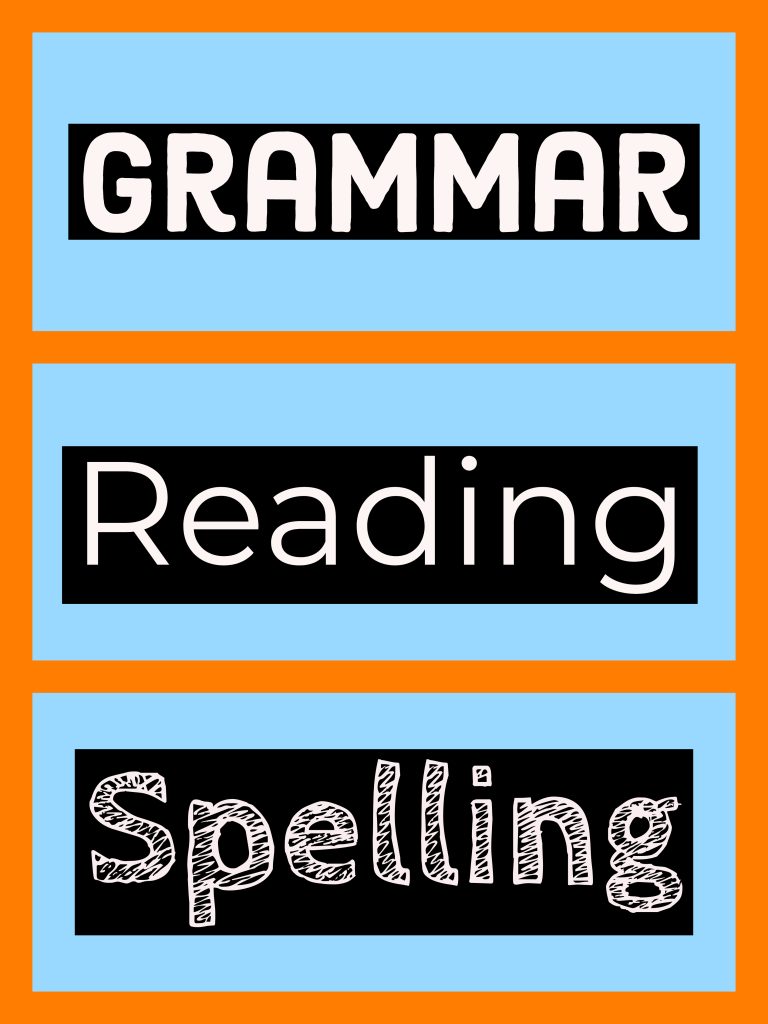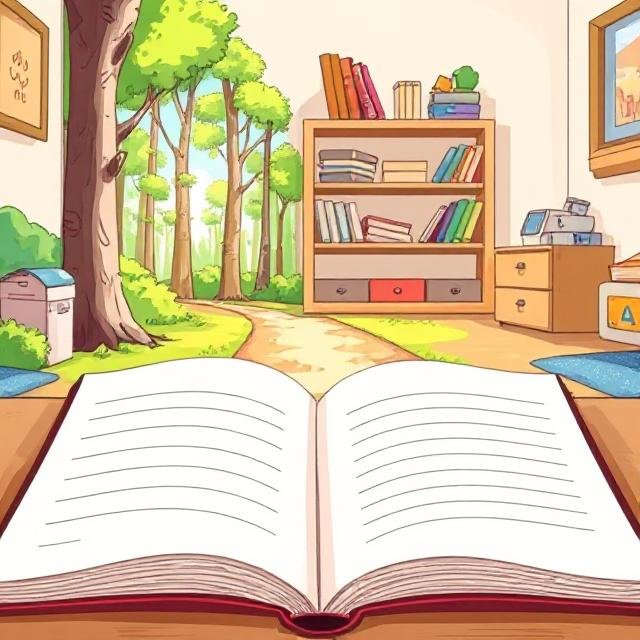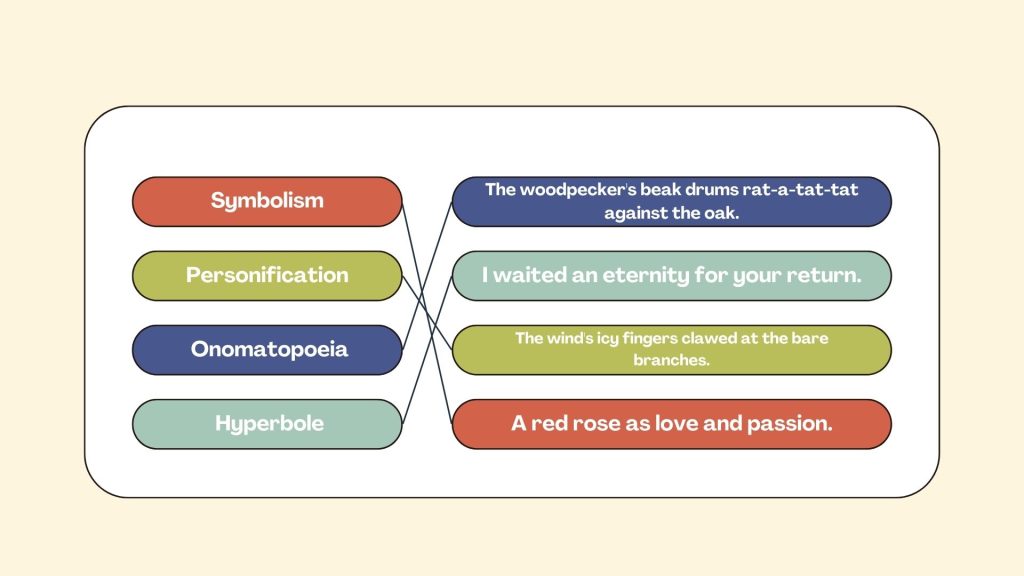
I think that I shall never see a poem lovely as a tree….
Thus began an impromptu game at the dinner table one night, spurred by a conversation we were having about poetry. I don’t remember what started that conversation. It might have had something to do with a college class my oldest daughter is taking. This led my husband (who’s not big on poetry, but has written a few ballads of his own back in the day) to jokingly quote the first couple of lines of the Joyce Kilmer poem, “Trees.” And then, of course, we all had to join in, and we went around the table, everyone picking a poem they liked and quoting parts or all of it. Sarah picked “Nothing Gold Can Stay” by Robert Frost, a poem she discovered while reading the novel, The Outsiders.
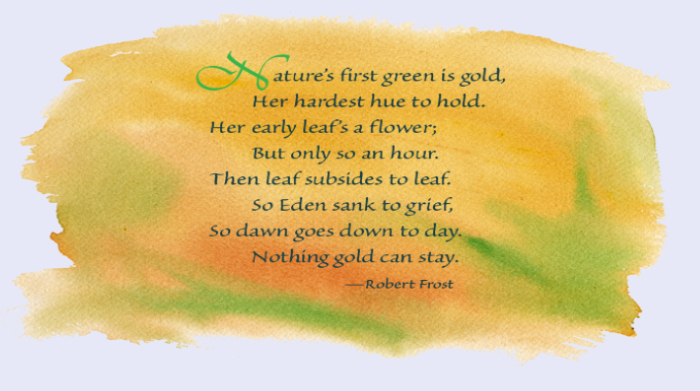
Leah chose part of a long Robert Browning poem called Paracelsus. She discovered it while watching an X-Files episode, in which only a very small part of the poem is quoted, but it caused her to look it up and find out more about it.
Anna, my youngest, picked, The Duel, by Eugene Field. It made her laugh, so she decided, on her own, to memorize it. My middle-schooler, James, chose Casey at the Bat as his favorite. I was surprised the most by this, since I didn’t think he had a favorite poem – even though he’s tried his hand at writing poems, like the one at the top of this post, created on a magnetic poetry site. Or this acrostic he wrote after reading a historical novel about yellow fever:
You hear the church bells ring
Everyone is sick, and dying
Less and less are in the city
Like the fever is scaring them to the country
Once you have it, you’ve almost no chance
When the doctors find out, they bloodlet you
For only nine days, the fever lasted
Even at that, it still was deadly
Vexing everyone who’s seen it
Even Thomas Jefferson left, because he thought the air was toxic
Really, it came from something so, so small; mosquitos were the cause of it all.
As I listened that evening to everyone talking about poems that had touched them, or that they’d found interesting or funny, I realized that, somehow, they’d developed an appreciation for this particular art form in spite of – or perhaps because of – the fact that I never used any structured lessons. I never planned poetry into our days. I’ve always had poetry books around, and we’d pull them out, and read some poems, and talk about them, and in the process, without realizing it, we’d be discussing techniques the author used or different figurative elements within the poems. Nothing earth shattering — but it seems to have yielded a positive result.
If only we could have this kind of experience with Algebra…
How does poetry happen in your home?
More Free Resources
Homeschool Poetry Unit Study: Prompts for writing different types of poems; poetry analysis worksheets covering literary techniques and comprehension
Poetry Templates: A collection of graphic organizers with ideas for writing a variety of poem types, such as biography poems, historical poems, limericks, and haiku.
Poems, because they are shorter literary works, can provide an easier way to study figurative language and other literary devices. Listed here are a variety of ideas and activities for building your own poetry units — and for igniting the creative spark:
Tools & Rules of Poetry: Text document describes the building blocks and figurative language of poetry.
What is Poetry? Workbook describing literary devices and types of poems
Poetry Analysis Form: Breaks down the study of a poem into sections for examining sound and literary devices, rhythm and stanzas, and other techniques.
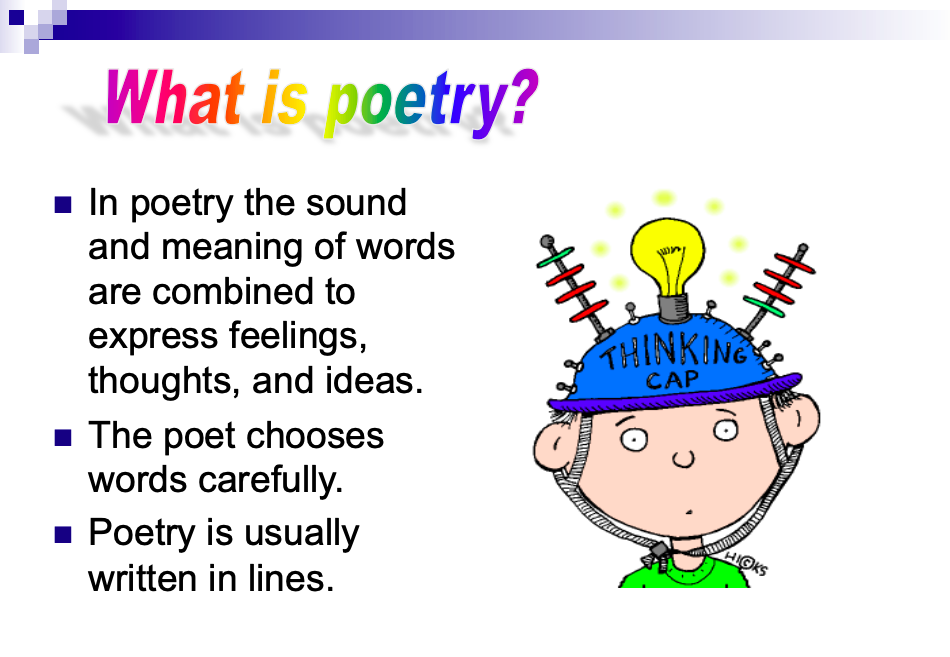
This powerpoint introduces and explains the fundamental elements and forms of poetry, including: elements of poetry; figures of speech; poetic forms and examples
Writing Poetry
Poetry Resource Pack: Writing templates and instructions for creating haiku, limerick, cinquain, free verse, acrostic, couplet, and diamante poems
Write a poem with the help of your fave poets at VersebyVerse. Here’s an example:
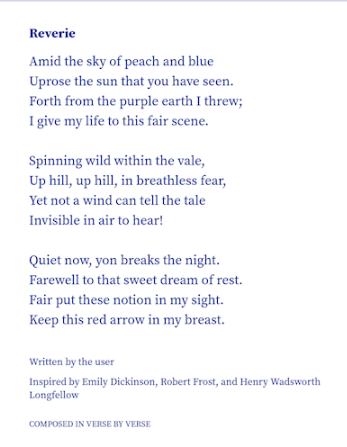
Poetry Booklet: Editable Google doc.
Find more poem-writing inspiration at PoetryGames.
Poetry Units
Here are some poetry units for more in depth study of particular poems. Each section includes student pages with one or more poems, short bios of the poets, and comprehension, analysis, and vocabulary questions. After the student pages for each poem section are teacher pages with answer keys. In addition, beside each poem section are online tutorials of literary devices used in the poems, and exercises related to the literary device.
Click Here for:
Sea Fever
The Village Blacksmith
Interactive Tutorials:
Rhyme
Rhythm
Greek and Latin Word Roots
Click Here for:
The Charge of the Light Brigade
The Highwayman
Interactive Tutorial:
Foreign Words In English
Click Here for:
Barbara Frietchie
John Henry

